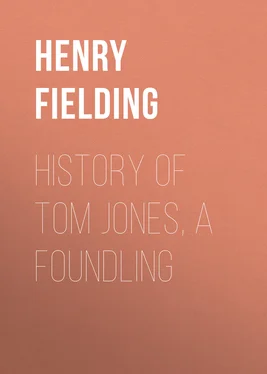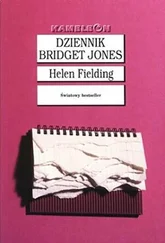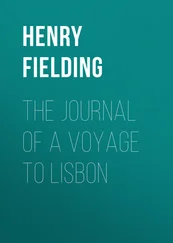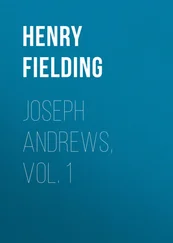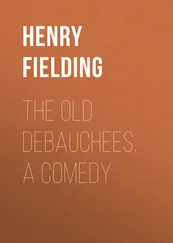Henry Fielding - History of Tom Jones, a Foundling
Здесь есть возможность читать онлайн «Henry Fielding - History of Tom Jones, a Foundling» — ознакомительный отрывок электронной книги совершенно бесплатно, а после прочтения отрывка купить полную версию. В некоторых случаях можно слушать аудио, скачать через торрент в формате fb2 и присутствует краткое содержание. Жанр: foreign_prose, foreign_antique, на английском языке. Описание произведения, (предисловие) а так же отзывы посетителей доступны на портале библиотеки ЛибКат.
- Название:History of Tom Jones, a Foundling
- Автор:
- Жанр:
- Год:неизвестен
- ISBN:нет данных
- Рейтинг книги:4 / 5. Голосов: 1
-
Избранное:Добавить в избранное
- Отзывы:
-
Ваша оценка:
- 80
- 1
- 2
- 3
- 4
- 5
History of Tom Jones, a Foundling: краткое содержание, описание и аннотация
Предлагаем к чтению аннотацию, описание, краткое содержание или предисловие (зависит от того, что написал сам автор книги «History of Tom Jones, a Foundling»). Если вы не нашли необходимую информацию о книге — напишите в комментариях, мы постараемся отыскать её.
History of Tom Jones, a Foundling — читать онлайн ознакомительный отрывок
Ниже представлен текст книги, разбитый по страницам. Система сохранения места последней прочитанной страницы, позволяет с удобством читать онлайн бесплатно книгу «History of Tom Jones, a Foundling», без необходимости каждый раз заново искать на чём Вы остановились. Поставьте закладку, и сможете в любой момент перейти на страницу, на которой закончили чтение.
Интервал:
Закладка:
Thwackum did all he could to persuade Allworthy from showing any compassion or kindness to the boy, saying, “He had persisted in an untruth;” and gave some hints, that a second whipping might probably bring the matter to light.
But Mr Allworthy absolutely refused to consent to the experiment. He said, the boy had suffered enough already for concealing the truth, even if he was guilty, seeing that he could have no motive but a mistaken point of honour for so doing.
“Honour!” cryed Thwackum, with some warmth, “mere stubbornness and obstinacy! Can honour teach any one to tell a lie, or can any honour exist independent of religion?”
This discourse happened at table when dinner was just ended; and there were present Mr Allworthy, Mr Thwackum, and a third gentleman, who now entered into the debate, and whom, before we proceed any further, we shall briefly introduce to our reader’s acquaintance.
Chapter iii. – The character of Mr Square the philosopher, and of Mr Thwackum the divine; with a dispute concerning —
The name of this gentleman, who had then resided some time at Mr Allworthy’s house, was Mr Square. His natural parts were not of the first rate, but he had greatly improved them by a learned education. He was deeply read in the antients, and a profest master of all the works of Plato and Aristotle. Upon which great models he had principally formed himself; sometimes according with the opinion of the one, and sometimes with that of the other. In morals he was a profest Platonist, and in religion he inclined to be an Aristotelian.
But though he had, as we have said, formed his morals on the Platonic model, yet he perfectly agreed with the opinion of Aristotle, in considering that great man rather in the quality of a philosopher or a speculatist, than as a legislator. This sentiment he carried a great way; indeed, so far, as to regard all virtue as matter of theory only. This, it is true, he never affirmed, as I have heard, to any one; and yet upon the least attention to his conduct, I cannot help thinking it was his real opinion, as it will perfectly reconcile some contradictions which might otherwise appear in his character.
This gentleman and Mr Thwackum scarce ever met without a disputation; for their tenets were indeed diametrically opposite to each other. Square held human nature to be the perfection of all virtue, and that vice was a deviation from our nature, in the same manner as deformity of body is. Thwackum, on the contrary, maintained that the human mind, since the fall, was nothing but a sink of iniquity, till purified and redeemed by grace. In one point only they agreed, which was, in all their discourses on morality never to mention the word goodness. The favourite phrase of the former, was the natural beauty of virtue; that of the latter, was the divine power of grace. The former measured all actions by the unalterable rule of right, and the eternal fitness of things; the latter decided all matters by authority; but in doing this, he always used the scriptures and their commentators, as the lawyer doth his Coke upon Lyttleton, where the comment is of equal authority with the text.
After this short introduction, the reader will be pleased to remember, that the parson had concluded his speech with a triumphant question, to which he had apprehended no answer; viz., Can any honour exist independent on religion?
To this Square answered; that it was impossible to discourse philosophically concerning words, till their meaning was first established: that there were scarce any two words of a more vague and uncertain signification, than the two he had mentioned; for that there were almost as many different opinions concerning honour, as concerning religion. “But,” says he, “if by honour you mean the true natural beauty of virtue, I will maintain it may exist independent of any religion whatever. Nay,” added he, “you yourself will allow it may exist independent of all but one: so will a Mahometan, a Jew, and all the maintainers of all the different sects in the world.”
Thwackum replied, this was arguing with the usual malice of all the enemies to the true Church. He said, he doubted not but that all the infidels and hereticks in the world would, if they could, confine honour to their own absurd errors and damnable deceptions; “but honour,” says he, “is not therefore manifold, because there are many absurd opinions about it; nor is religion manifold, because there are various sects and heresies in the world. When I mention religion, I mean the Christian religion; and not only the Christian religion, but the Protestant religion; and not only the Protestant religion, but the Church of England. And when I mention honour, I mean that mode of Divine grace which is not only consistent with, but dependent upon, this religion; and is consistent with and dependent upon no other. Now to say that the honour I here mean, and which was, I thought, all the honour I could be supposed to mean, will uphold, much less dictate an untruth, is to assert an absurdity too shocking to be conceived.”
“I purposely avoided,” says Square, “drawing a conclusion which I thought evident from what I have said; but if you perceived it, I am sure you have not attempted to answer it. However, to drop the article of religion, I think it is plain, from what you have said, that we have different ideas of honour; or why do we not agree in the same terms of its explanation? I have asserted, that true honour and true virtue are almost synonymous terms, and they are both founded on the unalterable rule of right, and the eternal fitness of things; to which an untruth being absolutely repugnant and contrary, it is certain that true honour cannot support an untruth. In this, therefore, I think we are agreed; but that this honour can be said to be founded on religion, to which it is antecedent, if by religion be meant any positive law – ”
“I agree,” answered Thwackum, with great warmth, “with a man who asserts honour to be antecedent to religion! Mr Allworthy, did I agree – ?”
He was proceeding when Mr Allworthy interposed, telling them very coldly, they had both mistaken his meaning; for that he had said nothing of true honour. – It is possible, however, he would not have easily quieted the disputants, who were growing equally warm, had not another matter now fallen out, which put a final end to the conversation at present.
Chapter iv. – Containing a necessary apology for the author; and a childish incident, which perhaps requires an apology likewise
Before I proceed farther, I shall beg leave to obviate some misconstructions into which the zeal of some few readers may lead them; for I would not willingly give offence to any, especially to men who are warm in the cause of virtue or religion.
I hope, therefore, no man will, by the grossest misunderstanding or perversion of my meaning, misrepresent me, as endeavouring to cast any ridicule on the greatest perfections of human nature; and which do, indeed, alone purify and ennoble the heart of man, and raise him above the brute creation. This, reader, I will venture to say (and by how much the better man you are yourself, by so much the more will you be inclined to believe me), that I would rather have buried the sentiments of these two persons in eternal oblivion, than have done any injury to either of these glorious causes.
On the contrary, it is with a view to their service, that I have taken upon me to record the lives and actions of two of their false and pretended champions. A treacherous friend is the most dangerous enemy; and I will say boldly, that both religion and virtue have received more real discredit from hypocrites than the wittiest profligates or infidels could ever cast upon them: nay, farther, as these two, in their purity, are rightly called the bands of civil society, and are indeed the greatest of blessings; so when poisoned and corrupted with fraud, pretence, and affectation, they have become the worst of civil curses, and have enabled men to perpetrate the most cruel mischiefs to their own species.
Читать дальшеИнтервал:
Закладка:
Похожие книги на «History of Tom Jones, a Foundling»
Представляем Вашему вниманию похожие книги на «History of Tom Jones, a Foundling» списком для выбора. Мы отобрали схожую по названию и смыслу литературу в надежде предоставить читателям больше вариантов отыскать новые, интересные, ещё непрочитанные произведения.
Обсуждение, отзывы о книге «History of Tom Jones, a Foundling» и просто собственные мнения читателей. Оставьте ваши комментарии, напишите, что Вы думаете о произведении, его смысле или главных героях. Укажите что конкретно понравилось, а что нет, и почему Вы так считаете.
